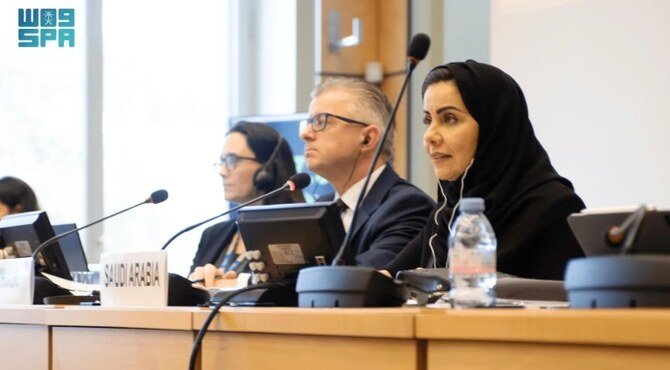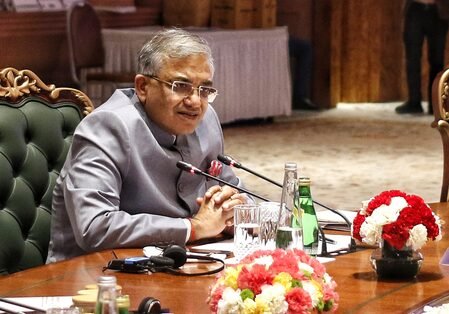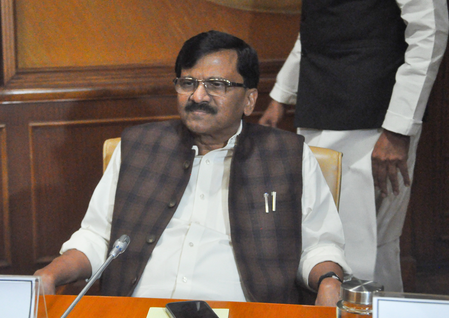
GENEVA, 29 November: Saudi Arabia has implemented sustained reforms that have reinforced its unwavering principles of justice and equality, the president of the Kingdom’s Human Rights Commission said on Wednesday.
Since the launch of Vision 2030, the Kingdom has “witnessed unprecedented openness to diverse races, cultures and religions,” said Hala bint Mazyad Al-Tuwaijri.
She is heading the Kingdom’s delegation to the 114th session of the Committee on the Elimination of Racial Discrimination in Geneva, Saudi Press Agency reported.
Al-Tuwaijri said: “The Kingdom’s territory is now home to over 13 million residents of more than 60 nationalities, constituting over 40 percent of the population.”
She added that these residents enjoy equal rights and protection from racial discrimination.
The HRC chief highlighted the issuance and amendment of regulations promoting protection from discrimination.
She said that national policy to encourage equal opportunities and treatment in employment and occupation is a key initiative to eliminate labor market discrimination.
Al-Tuwaijri highlighted national policy to prevent child labor. She also pointed to the establishment of labor courts as a qualitative advancement in the realm of labor justice.
The late King Abdulaziz bin Abdulrahman established the Kingdom on the bedrock principles of justice, equality and the rejection of racism and discrimination, she said.
Under the Saudi leadership, a contemporary interpretation of these steadfast principles has led to the development of a comprehensive legislative, institutional and judicial framework to combat racism and racial discrimination, she added.
Meanwhile, a statement issued by the Saudi delegation to the CERD session said that many regulations and bylaws in the Kingdom have been amended to achieve equality between men and women.
These include the Travel Documents Law, Civil Status Law, Labor Law and Social Insurance Law.
As a result, by the third quarter of 2024, women’s participation in the labor market reached 35.4 percent, with a change rate of 108 percent since 2017, surpassing Vision 2030 targets, the statement said.
“The number of women serving as chairpersons or vice-chairpersons of boards reached 327, and the number of women board members reached 1005. Women held 43.8 percent of mid and senior management positions in the private sector.
“The number of female ambassadors abroad stood at six, with 204 female diplomats and 246 women working in international institutions abroad,” the statement said.








